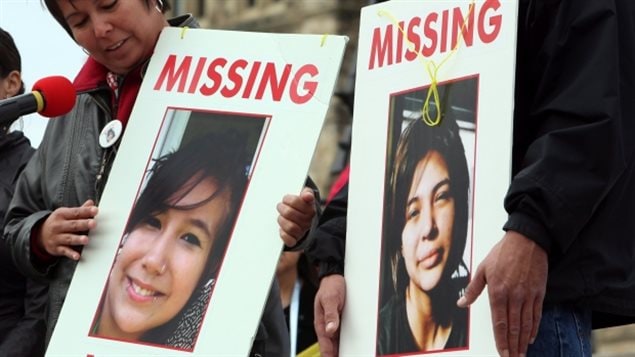Amnesty International Canada has issued a stinging attack on the current Canadian government for putting economic development ahead of human rights. It has released a report on issues it hopes will be raised in a federal election campaign expected in 2015.
Canada’s record ‘very, very troubling’
“For a number of years we have been seeing a shift from Canada once having been recognised as the human rights leader both domestically and globally, to increasingly being the human rights laggard,” says Alex Neve, secretary general of Amnesty International Canada. “The list of areas of concern, including areas where we are losing ground, are very, very troubling.
ListenAboriginal issues ‘top the list’
“Obviously when we think about the domestic human rights front, the situation of indigenous peoples has to top the list.” Amnesty International Canada has for the past decade called for an inquiry into violence against aboriginal women and girls. Neve notes that while many sectors of society agree something must be done about the high number of dead and disappeared females, the government remains “entrenched” in its refusal to treat them differently from non-aboriginal women who have disappeared or been murdered.
He also notes a failure to protect aboriginal land and resource rights from the development of mines, pipelines, dams and other projects. He criticizes the unequal provision of basic rights like safe water, adequate housing and education.
Laws needed in mining
Rights must be preserved in mining operations outside of Canada, says Neve, singling out projects in Guatemala where Canadian resource companies are active. “We may lead the world in mining, we certainly don’t want to be leading the world in mining-related human rights abuses,” he says, it’s time the government stop relying on the good will and voluntary initiatives of companies and instead pass laws obliging them to preserve human rights.

Canada ‘complicit’ in torture
While Canada does not torture, the report notes that a judicial inquiry has determined that Canadian officials have been complicit in the torture of Canadians abroad. And where Canadians and permanent residents have been incarcerated abroad the government has been inconsistent in efforts to spare them unfair trials, arbitrary detention, torture and even the death penalty.
The report questions why Canada has failed to ratify the UN Optional Protocol to the Convention Against Torture which allows for the inspection of detention centres around the world.
Human rights issues in an election campaign
Neve acknowledges that there are areas where the Canadian government has engaged in good initiatives to promote human rights, but there is much more to be done. He hopes this report will help bring these issues into the spotlight during next year’s election campaign.







For reasons beyond our control, and for an undetermined period of time, our comment section is now closed. However, our social networks remain open to your contributions.